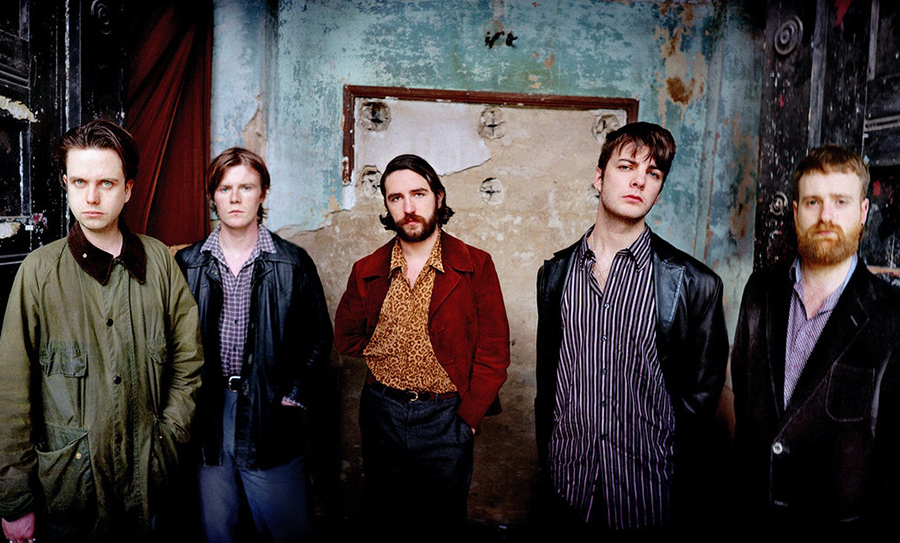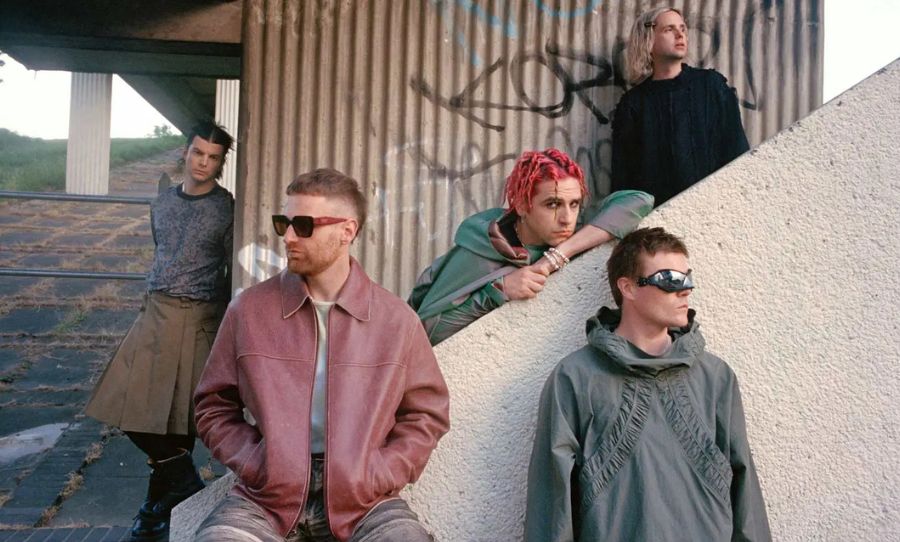Fontaines D.C. have just released their sophomore album A Hero’s Death, with its bleak disruptiveness serving as the perfect joiner to the global upheavals of this year.
Hailing from The Liberties – a working-class neighbourhood in Dublin, Fontaines D.C. express the sordid realities normalised by the human condition. It’s T.S. Eliot in a nutshell; a broader comment on the modern man trying to gain a foothold in this world.

A Hero’s Death needs to be listened to in its entirety, preferably in order to gain its full traction. From the album’s existential opener to the climax of the ferociously blistering A Lucid Dream, Fontaines D.C. move like the pace of emotion captured on their record.
What’s driving Fontaines D.C. on A Hero’s Death is their holistic ability to capture feeling; meandering between a dance of sadness and rage before shifting into consequential excess and, eventually, fear and empathy.
The minimal tempo of the introspective opener, I Don’t Belong, is tightly bound like a NEU! track. Chatten’s monotone lends itself exclusively to the very nihilism that cycles throughout the album. Structured unobtrusively, like Fugazi’s The Argument, the song has a peculiar dislocation that questions individuality and warns against self-autonomy and complacency.
It’s not until the guitar reverb bellows on Love is the Main Thing, that we really feel the bona fide shock being absorbed. The band write words that subvert any tense, neologism that still manages to make sense.
Then there’s the horror of leading life strung out, hazy in an almost permanent daze. The static becomes electrified, funneling directly into Televised Mind: the record’s subsequent abrasive track.
A Lucid Dream is the album highlight, changing course like the weather and toying with the brittle nature of retrospect: “I was there when the rain changed direction and fled to play tricks with your hair. Overlooking them, there and it’s all coming back.”
The stanza blurs reality with the dreamscape, highlighting the cloudiness that occurs when it becomes too difficult to distinguish one from the other; the trepidation of deception.
Then there’s You Said, with its Oasis flair, exploring the blur of life “on the brink”, telling you to slow down then inverting on itself and enticing you to “try, operating faster”. Continuously contradicting yourself at every turn, the confusion makes it even harder to move on from the past.
Oh Such a Spring is the perfect departure from the first side of the album, sounding like an early Arctic Monkeys rendition. Of course, it also deals with some of the major thematic concerns underpinning the Irish working class.
There’s the fear of slipping into the routine of work and banality, then the potential of turning to drink to soak up the mundane. If The Pogues were the first to coalesce punk with traditional Irish folklore, then Fontaines D.C. have reasserted it at a time where turbulence reigns true again.
The oxymoronic title track to the record, A Hero’s Death, is the calming voice of reason that serves to reassure that “life ain’t always empty”. There’s the rationality of moving on from the past, whilst there are also the incentives associated with helping others and freeing oneself from the restraints of time.
The folklore intertextuality in “Buy yourself a flower every hundredth hour, throw your hair down from your lonely tower” grapples with the idea of boosting self-esteem by ultimately being less harsh on your worst enemy; yourself.
Recorded in L.A. last October, Fontaines D.C. hopped back into the studio just six months after the release of their first LP Dogrel. The transient nature of a musician is tied into Living in America, constantly moving and leaving behind.
Meanwhile, the straight string I Was Not Born pays direct homage to The Velvet Underground’s I’m Waiting For The Man. Lou Reed’s seminal work captured the drug-trodden discards of New York City, with Fontaines D.C. trying to reassert this into their dampened Irish context.
The Lynchian eeriness of Sunny is so discreet that it makes you feel just as confused as the protagonist underpinning the lyrics. An untuned guitar intro sets the pace of the wispy track. Chatten’s intonation is matched with a similar dislocation to Ian Curtis, with remorse that clings and sets this record aside from the rest.
Playing a broken father figure now (“You’d sooner draft me as a soldier than you’d have me for a dad”), the artist repeatedly questions his own conscience: “Where I was I can not tell? Where I was I can not tell…” Helplessness trembles on the verge of fragility.
A Hero’s Death comes to an abrupt closure, as quickly as the last strand of hope becomes warped and snapped beyond reparation. Blanketed with tumbling piano, No is drawn out by the echo of Chatten’s trembles. Just like that, suddenly every emotion haunting our protagonist prickles and swirls him into the void of the unknown: “And you’re mugged by your belief that you owe it all to grief, no, even when you don’t. You feel, you feel.”
A Hero’s Death is possibly the best thing to come out of 2020. It’s abrupt but seldom overdone, managing to convey a boundless array of emotions that resonate with anyone feeling on the outside. With the lyrical integrity of Mark E. Smith and the forbidding severity of Joy Division, the Dublin quartet have solidified their mark in Northern Europe’s post-punk scene.
You can grab hard copies of A Hero’s Death on the Fontaines D.C. website. You can also buy the Digital Album from their Bandcamp.



